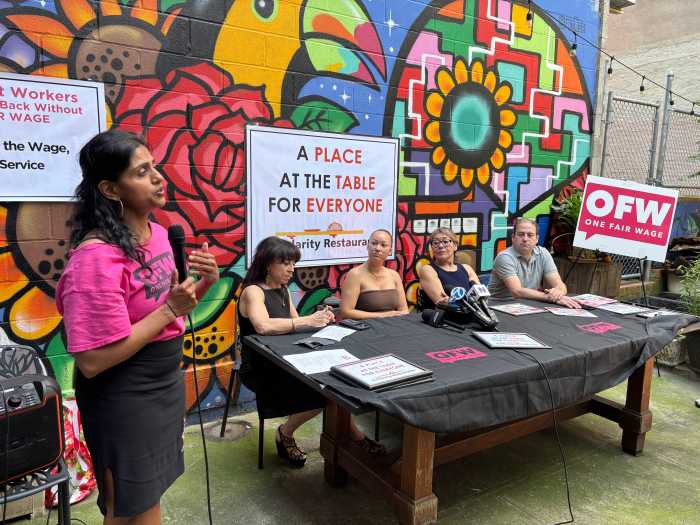
BY GALE BREWER | One of the bright spots in a very challenging year in government has been the successful passage of the deed-restriction reform legislation I sponsored with Councilmember Margaret Chin. The bill, which was signed into law by Mayor Bill de Blasio last December, contains a strong set of reforms that correct the problems that led to the loss of Rivington House.
Rivington House, a former school building that for years housed an AIDS hospice serving the Lower East Side and East Village communities, was protected by deed restrictions, conditions placed on the property that required it to be used for nonprofit healthcare.
When the restrictions were removed and it was sold to a condo developer, it was clear government had screwed up.
First, there was a lack of notification to the community and politicians that the deed restriction for nonprofit healthcare use was being removed. Second, there was a lack of oversight or input from the city agency — the Department of City Planning — that actually decides whether to remove the deed restriction. Third, there was a lack of clear accountability in the decision-making process for removing deed restrictions.
The city lacked a central list of deed-restricted sites or searchable database.
The new law that Councilmember Chin and I sponsored establishes that accountability rests with the mayor, not anonymous bureaucrats. It requires real notice to politicians and the community before any deed restriction is lifted. It gives City Planning a formal role in the process, so that decisions with real land-use impacts aren’t being made in a vacuum by the city’s property-management agency. And, finally, it requires the city track deed-restricted properties going back 50 years in an online, publicly accessible database.
Brewer is Manhattan borough president


































